第37章 OSTIG IN SKY(2)
They gather a little hay,but the grass is mown late;and is so often almost dry and again very wet,before it is housed,that it becomes a collection of withered stalks without taste or fragrance;it must be eaten by cattle that have nothing else,but by most English farmers would be thrown away.
In the Islands I have not heard that any subterraneous treasures have been discovered,though where there are mountains,there are commonly minerals.One of the rocks in Col has a black vein,imagined to consist of the ore of lead;but it was never yet opened or essayed.In Sky a black mass was accidentally picked up,and brought into the house of the owner of the land,who found himself strongly inclined to think it a coal,but unhappily it did not burn in the chimney.Common ores would be here of no great value;for what requires to be separated by fire,must,if it were found,be carried away in its mineral state,here being no fewel for the smelting-house or forge.Perhaps by diligent search in this world of stone,some valuable species of marble might be discovered.But neither philosophical curiosity,nor commercial industry,have yet fixed their abode here,where the importunity of immediate want supplied but for the day,and craving on the morrow,has left little room for excursive knowledge or the pleasing fancies of distant profit.
They have lately found a manufacture considerably lucrative.Their rocks abound with kelp,a sea-plant,of which the ashes are melted into glass.They burn kelp in great quantities,and then send it away in ships,which come regularly to purchase them.This new source of riches has raised the rents of many maritime farms;but the tenants pay,like all other tenants,the additional rent with great unwillingness;because they consider the profits of the kelp as the mere product of personal labour,to which the landlord contributes nothing.However,as any man may be said to give,what he gives the power of gaining,he has certainly as much right to profit from the price of kelp as of any thing else found or raised upon his ground.
This new trade has excited a long and eager litigation between Macdonald and Macleod,for a ledge of rocks,which,till the value of kelp was known,neither of them desired the reputation of possessing.
The cattle of Sky are not so small as is commonly believed.Since they have sent their beeves in great numbers to southern marts,they have probably taken more care of their breed.At stated times the annual growth of cattle is driven to a fair,by a general drover,and with the money,which he returns to the farmer,the rents are paid.
The price regularly expected,is from two to three pounds a head:
there was once one sold for five pounds.They go from the Islands very lean,and are not offered to the butcher,till they have been long fatted in English pastures.
Of their black cattle,some are without horns,called by the Scots humble cows,as we call a bee an humble bee,that wants a sting.
Whether this difference be specifick,or accidental,though we inquired with great diligence,we could not be informed.We are not very sure that the bull is ever without horns,though we have been told,that such bulls there are.What is produced by putting a horned and unhorned male and female together,no man has ever tried,that thought the result worthy of observation.
Their horses are,like their cows,of a moderate size.I had no difficulty to mount myself commodiously by the favour of the gentlemen.I heard of very little cows in Barra,and very little horses in Rum,where perhaps no care is taken to prevent that diminution of size,which must always happen,where the greater and the less copulate promiscuously,and the young animal is restrained from growth by penury of sustenance.
The goat is the general inhabitant of the earth,complying with every difference of climate,and of soil.The goats of the Hebrides are like others:nor did I hear any thing of their sheep,to be particularly remarked.
In the penury of these malignant regions,nothing is left that can be converted to food.The goats and the sheep are milked like the cows.A single meal of a goat is a quart,and of a sheep a pint.
Such at least was the account,which I could extract from those of whom I am not sure that they ever had inquired.
The milk of goats is much thinner than that of cows,and that of sheep is much thicker.Sheeps milk is never eaten before it is boiled:as it is thick,it must be very liberal of curd,and the people of St.Kilda form it into small cheeses.
The stags of the mountains are less than those of our parks,or forests,perhaps not bigger than our fallow deer.Their flesh has no rankness,nor is inferiour in flavour to our common venison.
The roebuck I neither saw nor tasted.These are not countries for a regular chase.The deer are not driven with horns and hounds.Asportsman,with his gun in his hand,watches the animal,and when he has wounded him,traces him by the blood.
They have a race of brinded greyhounds,larger and stronger than those with which we course hares,and those are the only dogs used by them for the chase.
Man is by the use of fire-arms made so much an overmatch for other animals,that in all countries,where they are in use,the wild part of the creation sensibly diminishes.There will probably not be long,either stags or roebucks in the Islands.All the beasts of chase would have been lost long ago in countries well inhabited,had they not been preserved by laws for the pleasure of the rich.
There are in Sky neither rats nor mice,but the weasel is so frequent,that he is heard in houses rattling behind chests or beds,as rats in England.They probably owe to his predominance that they have no other vermin;for since the great rat took possession of this part of the world,scarce a ship can touch at any port,but some of his race are left behind.They have within these few years began to infest the isle of Col,where being left by some trading vessel,they have increased for want of weasels to oppose them.